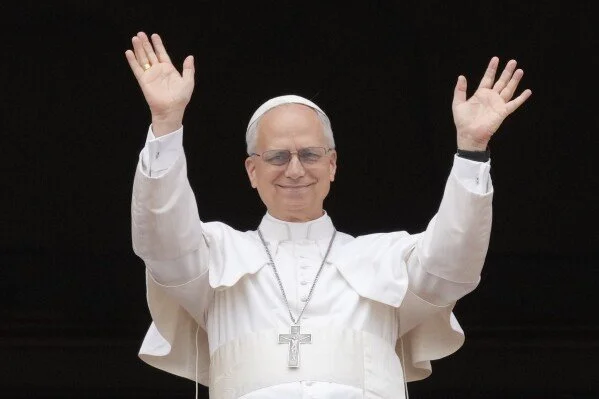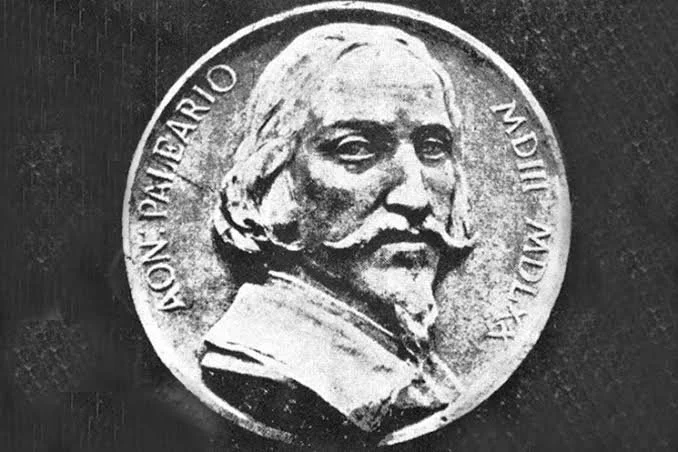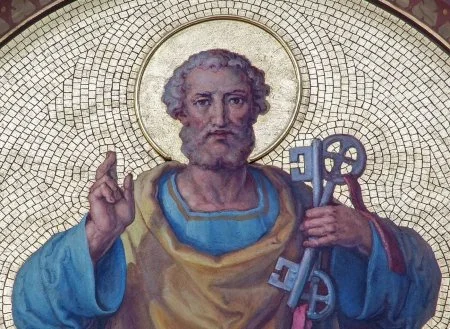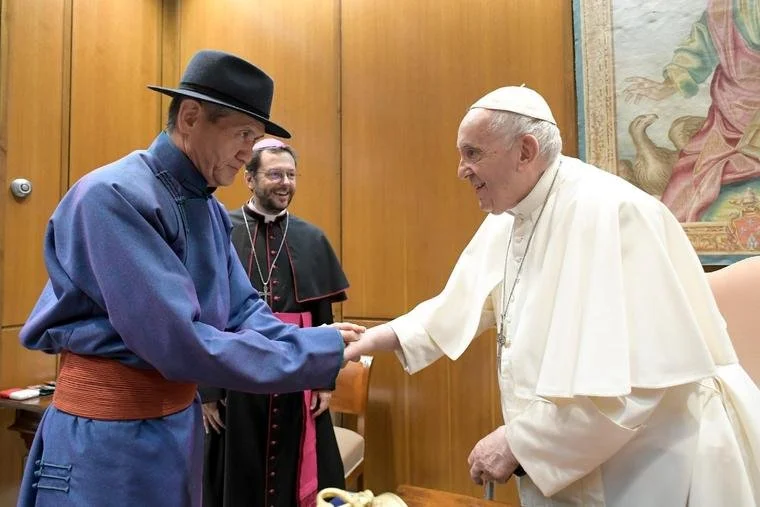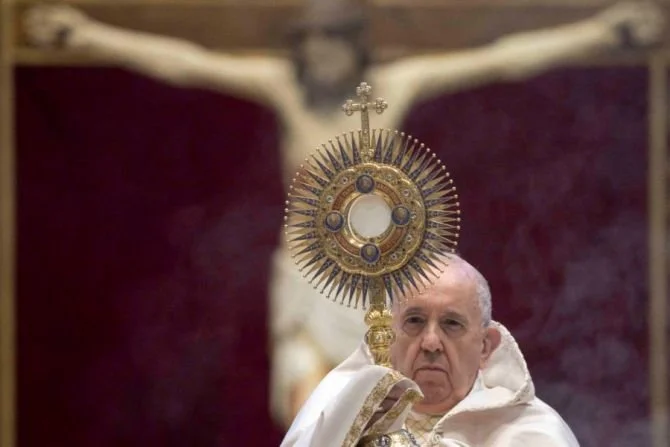The need for a true gospel reformation within the Roman Catholic Church is as urgent as it was five hundred years ago, when Martin Luther himself climbed the Scala Sancta to the top and thought, "Who knows if any of this is really true?"
God’s love is present, but there is no sin. God’s love, however, loses is salvific and redemptive value if sin is absent. No sin, no gospel. That is why sin must maintain a primary place in the gospel narrative. In all that Leo XIV has mentioned and referenced in his short papacy, sin is absent. Time will tell if that changes or not.
In the entire history of the Roman Catholic Church, it is surprising that Hope: The Autobiography is the first autobiography published by a sitting pope. Written over the course of six years it was originally intended to be published posthumously, but Pope Francis and his advisors decided it should be published to coincide with the 2025 Roman Catholic Year of Jubilee, which has identified “hope” as its central theme.
As evangelicals, we need to heed Margery’s call to better understand contemporary Roman Catholic teaching and practice. We cannot rely on out-dated caricatures and Protestant slogans wielded with little understanding of the nuance of modern Roman Catholicism.
As the online world of Roman Catholic apologetics continues to grow, so do attempts to soften Protestant criticisms of what are considered some of their most anti-Biblical and strange practices. One such practice is praying to Mary and the "saints."
What do Anthony Hopkins, Netflix and Joel Osteen have in common? The Virgin Mary. It sounds like the start of a joke, but this Christmas, in the midst of the movies filled with snowstorms and over-worked business executives who rediscover the magic of Christmas in small town America, Netflix have released Mary, a feature film about the mother of Jesus.
Michael Havercamp (a practicing Catholic and YL’s Director of Catholic Relations) states that Roman Catholics believe in salvation by grace. “Once in a while, a Protestant will suggest that Catholics believe salvation comes from works, not faith. But just like Protestants, Catholics believe we are saved by grace through faith in Jesus Christ.” This is a classic case of same words, different worlds. This statement is meant to put Protestants at ease and make them feel comfortable collaborating with Roman Catholics for the sake of the gospel. But is the statement really true? Do Catholics believe in salvation by grace?
Today there is a strong temptation to disregard and no longer talk about the law. Perhaps this is because, as The Benefit of Christ points out, if we talk about the law then we must also talk about sin, condemnation, God's wrath and judgment, and even hell. Instead, it is preferable to talk only about God's love and how we are all brothers and sisters and all children of God.
Hi I’m Mark Gilbert and I’m one of the authors of Talking with Catholics About Jesus.
Talking with Catholics About Jesus is a 10 unit training course written for small groups. There is a 30 min video component and a workbook available online for each of the units. Each unit takes between 60 – 90 min to complete.
The course is made up of two parts. Each part stands alone so it is really a course made up of two smaller courses. The first part is all about understanding people from a Roman Catholic background. It contains 6 units. The second part is all about talking with Catholics about Jesus. It contains 4 units.
The Benefit of Christ’s Death was first printed in Venice, Italy in 1543 at printing press of Bernardo de' Bindoni. It was immediately a huge success, and a reprint was issued the same year, just a few months later. As the historian Salvatore Caponetto notes, "the short book was amongst the best-sellers of the sixteenth century" (p.8).
It is very certain that there were the elements of a great Reformation in Italy, during the forenoon of the sixteenth century. Italy had a roll of noble reformers contemporary with Luther and Calvin. To Italy was given the Bible in the language of the people; a gospel literature began to spring up on their soil. Mighty men labored to bring the Italian church back to the ancient faith that existed when Paul preached, Nero persecuted, and Ignatius suffered. Yet how little is known of them!
The total absence of sin from the Instrumentum laboris speaks volumes concerning the Roman Catholic Church’s current understanding of synodality and mission. Any attempt to justify its absence is white noise. Biblically speaking, there is no justifiable reason whatsoever to write extensively on being missionary and never mention sin once. It demonstrates with clarity that the mission of the Synodal Church is not the gospel mission of the Bible.
Is the evangelical church ready to respond to the invitation and implications of The Bishop of Rome? Is it clear on its theological convictions and identity, and does it understand those of Rome? Is there clarity concerning Rome, or is it a blind spot for the evangelical church that creates more confusion than clarity? Is it ready to stand firm on the truths of the biblical gospel which were recovered by the Reformers and then rejected by Rome? The Bishop of Rome suggests this day is perhaps coming, and the church must be ready. Is your church ready?
Evangelicals should immediately recognize the offense that indulgences are to the gospel of Jesus Christ. Indulgences are alive and well in the Roman Catholic Church. The Year of Jubilee is fast approaching. In your church or in your family are there those who might be attracted by a pilgrimage to Rome or to a shrine to obtain something that only Christ can obtain for us?
Near and far at the same time. Religiously and culturally, Portugal has a similar profile to Italy, where the Reformanda Initiative is based. A historically Catholic country steeped in Counter-Reformation Catholicism, only in the last century has it opened up to the evangelical witness that has taken root in Pentecostal, Brethren and Baptist church families.
Although it means nothing officially, the BBC is right; the Pope’s blessing of same-sex unions is a step in the right direction for the LGBT community. You can rest assured, however, that it will not be enough. Once that door is cracked open, it is a matter of time before it is pushed further open. This is why doctrinal clarity is a blessing for the church, and why it is necessary. Once it is abandoned and God’s Word alone ceases to provide the doctrinal parameters for the church, it is only a matter of time before theological confusion ensues. What we are seeing in the RCC is clear evidence of this.
Imagine you are a church leader, and you have the opportunity to speak to 7,500 children from 84 different countries on one single occasion. What an opportunity that would be! What would you say? What would your message be to those children? For Pope Francis this scenario became a reality on November 6th, as he had the privilege of hosting 7,500 children in the Vatican.
From an Evangelical perspective, it remains clear that the theological foundation of the Synodal Church will not permit any real and meaningful reform in the Roman Catholic Church. The primary reason for this is the authority to which the Synodal Church submits while charting its path forward.
Rome is Catholic but it is also Roman. As it opens itself to (Catholic) synodality it strengthens the (Roman) papacy. Those who think that synodality is synonymous with evangelicalism are therefore deluding themselves. It appears to be a mode of catholicity that, while it elasticizes some aspects, it does not touch the decisive ones.
Evangelicals must not fall into the trap of believing that altruism is an antonym of theological conviction and clarity. That is certainly not the case. In fact, the Gospel of Jesus Christ suggests that true altruism is best expressed in the faithful proclamation of the biblical Gospel, especially the parts of it that offend fallen human nature.
In a recent article in Christianity Today, an influential Evangelical pastor in London by the name of Nicky Gumbel, praised the Roman Catholic Church for “leading the way in evangelization.” Gumbel pointed to Pope Francis’s 2013 Apostolic Exhortation Evangelii Gaudium (The Joy of The Gospel) as an excellent roadmap for Christians in understanding evangelization.
“If you are the same at the end of the Mass, as you were at the beginning, something is wrong.” These are the words of Pope Francis in a recent appeal to the Roman Catholic faithful to place the celebration of the Eucharist at the center of their lives.
According to Rome, regeneration occurs the moment the sacrament of baptism is administered. This is the entry-point to the sacramental life and economy of the Roman Catholic Church. This, however, is problematic from an evangelical perspective.
Evangelicals need to be aware of what is taking place so that they are equipped to understand the implications of synodality. The following reflections are by no means exhaustive, but simply provide food for thought for the evangelical church as the synodal process continues.
The Evangelical church ought to take note of this and understand what is at stake with statements such as the Declaration on Human Fraternity. It is not an anomaly, but consistently reflects Vatican II. Peace and fraternity are admirable endeavors, but not at the expense of the Gospel of Jesus Christ.
While certain aspirations of the Synodal Path being proposed by Pope Francis seem admirable, it presents several concerns for the evangelical church. Let us briefly consider two.
While Jews and Muslims and Christians are called to live in peace, to respect one another, to dialogue, and to collaborate together on issues that do not require a capitulation of any kind whatsoever of the gospel, the Bible is crystal clear that they are not brothers and sisters in the way that Pope Francis suggests. To say otherwise confuses and distorts the gospel to a point of unrecognition. And if the gospel is no longer recognizable, it can no longer save.
“You may well ask: how do we win in life?” The answer to this question is not a sports analogy that encourages us to pursue our dreams while Jesus comes alongside and cheers us on as our coach. The answer to how we win in life is found in the redemptive work of Jesus Christ on the cross, where he claimed victory over death.



